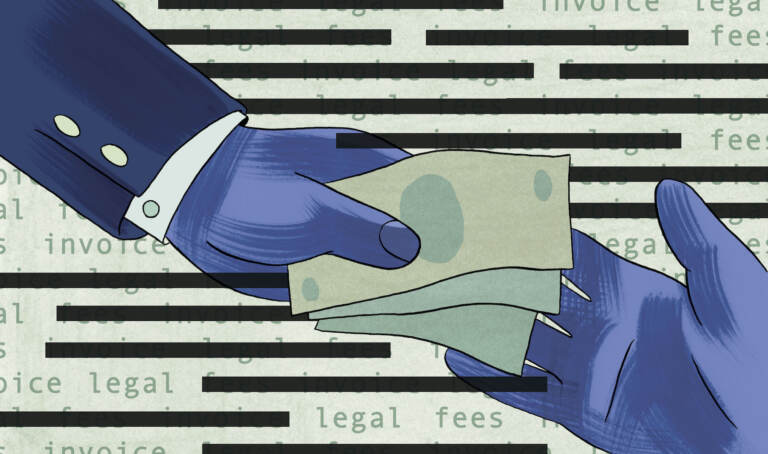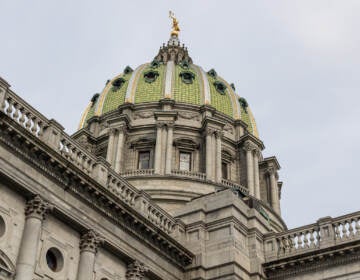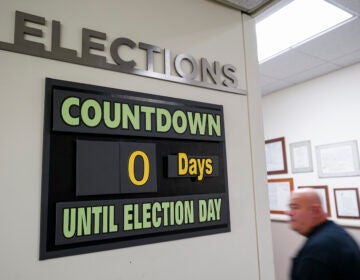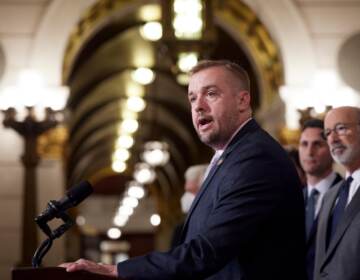Pa. legislature must show proof before redacting legal bills, court finds
Commonwealth Court ruled the legislature cannot use a blanket reason to redact bills from private law firms.

An illustration showing some of the legal bill redactions made by the PA legislature. (Leise Hook for Spotlight PA)
This story originally appeared on Spotlight PA.
Nearly two years ago, Spotlight PA and its partner newsroom, The Caucus, asked Pennsylvania’s legislature for details about how much money lawmakers spend on private lawyers — and why they were hired.
Both chambers turned over hundreds of pages of financial records, but in many instances, they wholly blacked out the reason for hiring those attorneys, leaving the public in the dark about why they were spending taxpayer dollars.
An appellate court ruling this week could help shake loose some of that secret information.
The rulings stem from long-running court challenges by Spotlight PA and The Caucus to redactions the legislature made to legal bills and other documents it turned over in response to a public records request in late 2021. The news organizations sought contracts, invoices, and other financial documents from the chambers related to legal work performed by all outside law firms and private lawyers that year.
Legislative leaders in both chambers provided the records, but in multiple instances redacted one of the most important details: the reason for hiring the private lawyers in the first place. They argued the blacked-out information, if revealed, would jeopardize legal strategy or violate attorney-client privilege, which among other things shields private communications between attorneys and the people they represent.
The news organizations appealed.
Unlike the executive branch, the state House and Senate do not have to make their case to the state’s Office of Open Records, an independent agency that is typically the first stop in deciding public records disputes. Instead, the two chambers designate appeals officers from within their own ranks — a practice criticized by good-government activists as effectively allowing lawmakers to act as their own judges.
The state Senate’s appeals officer, for instance, has sided with the chamber — or dismissed a third-party appeal as moot or premature — in every single public records dispute over the past decade, according to its website.
In the dispute over the legal bills, the legislature’s appeals officers decided the redactions were appropriate. The news organizations, represented by the Reporters Committee for Freedom of the Press, then sued in Commonwealth Court.
In decisions released this week, Commonwealth Court Judge Patricia A. McCullough agreed the legislature cannot use attorney-client privilege — or the reasoning that the unredacted material would reveal private work product — to “categorically” redact the subject matter of its legal engagements. Instead, she said the General Assembly bears the burden of providing evidence of those privileges on a case-by-case basis.
The state House, McCullough concluded, had met that burden; the state Senate had not. As a result, McCullough directed the state Senate’s appeals officer to conduct what is called an “in-camera review” — or a private review — of the underlying records to make that determination on a case-by-case basis.
Paula Knudsen Burke, the RCFP attorney who represented the news organizations, called McCullough’s decisions “a win for access,” as they reaffirm that the legislature must produce evidence in every instance it seeks to shield information about why it is hiring private lawyers.
Lawyers for the state Senate, which can appeal to Pennsylvania’s highest court, would not comment on the ruling.
Terry Mutchler, a former head of the Office of Open Records who specializes in public records, said the case shows why the legislature should amend Pennsylvania’s Right-To-Know Law to require both chambers, like the executive branch, to answer to the independent agency when disputes arise.
“They should be the fact finders,” she said of the Office of Open Records. “Because otherwise, you have the public thinking that the fox is watching the henhouse.”
 Spotlight PA is an independent, non-partisan newsroom powered by The Philadelphia Inquirer in partnership with PennLive/The Patriot-News, TribLIVE/Pittsburgh Tribune-Review, and WITF Public Media.
Spotlight PA is an independent, non-partisan newsroom powered by The Philadelphia Inquirer in partnership with PennLive/The Patriot-News, TribLIVE/Pittsburgh Tribune-Review, and WITF Public Media.
WHYY is your source for fact-based, in-depth journalism and information. As a nonprofit organization, we rely on financial support from readers like you. Please give today.






